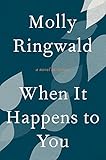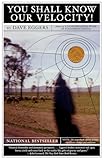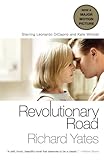 A few weeks ago, whenever I told anyone I was reading Molly Ringwald’s novel-in-stories When it Happens to You, they either said, “Wow, cool!” or, “Ugh. Why?” To the latter, I replied, “Why not?” Ringwald has always presented herself as well-spoken and well-read, and being an actress isn’t necessarily a detriment to writing: after all, actors, like fiction writers, must inhabit characters and seek out a scene’s power. (And, dude, if you were in Pretty in Pink, you’re basically qualified to win a Nobel.)
A few weeks ago, whenever I told anyone I was reading Molly Ringwald’s novel-in-stories When it Happens to You, they either said, “Wow, cool!” or, “Ugh. Why?” To the latter, I replied, “Why not?” Ringwald has always presented herself as well-spoken and well-read, and being an actress isn’t necessarily a detriment to writing: after all, actors, like fiction writers, must inhabit characters and seek out a scene’s power. (And, dude, if you were in Pretty in Pink, you’re basically qualified to win a Nobel.)
I devoured When it Happens to You in a day or two. It was an engaging and pleasing read, with lines like, “Greta had always been most beautiful to him when emerging from water. Swimming pools, oceans, bath tubs.” Ringwald treats her characters with compassion, and I enjoyed seeing how each story would connect to the next. Overall, though, I was underwhelmed, perhaps because the territory mined is so familiar: there’s an affair, there are blah sentences like, “The color had drained from her face.” There’s even a description of a woman who, after almost being run over, raises “a furious fist” at the driver, like some irate extra in an action flick’s chase sequence. I longed for a more daring and complicated book; Ringwald has one in her future, I know it, but this isn’t it.
Even so, as I said, I devoured the novel, and, in general, enjoyed it. Its predictable content and structure were comforting, like a catchy pop song or a romantic comedy. You know, as Adorno might say, its familiarity helped me ward off death. Or something.
In a recent profile of Justin Cronin in the New York Times Magazine, Colson Whitehead is quoted as saying he’d “rather shoot [him]self in the face” than have another discussion about literature genres. I don’t blame him. When people ask me what kind of fiction I write, I usually say, “It’s about people,” and leave it at that. But as I read Ringwald’s book, I found myself pondering literary fiction: as a genre, as a taxonomical category. When It Happens to You, you see, is a sterling example of literary fiction, if we were to consider literary fiction as a straightforward genre like romance or science fiction, with certain expected tropes and motifs.
What, you ask, are some attributes of this genre? Read on, my friend, read on.
1. The Long Title

 When it Happens to You is not only a long title, it’s also in the second person, as are many titles in the literary fiction category. I think we should blame Dave Eggers for starting this trend with his novel You Shall Know Our Velocity. Or maybe Miranda July‘s story collection, No One Belongs Here More Than You, really got things going. I, too, am guilty of joining the bandwagon with my hard-to-say novella title, If You’re Not Yet Like Me. Uwem Akpan demanded us to Say You’re One Of Them, and Elliott Holt will comply with her forthcoming You Are One Of Them. Ramona Ausubel’s debut, No One Is Here Except All of Us, switched things up with the first-person plural; perhaps she was inspired by fellow UC Irvine alumnus Joshua Ferris’s Then We Came to the End.
When it Happens to You is not only a long title, it’s also in the second person, as are many titles in the literary fiction category. I think we should blame Dave Eggers for starting this trend with his novel You Shall Know Our Velocity. Or maybe Miranda July‘s story collection, No One Belongs Here More Than You, really got things going. I, too, am guilty of joining the bandwagon with my hard-to-say novella title, If You’re Not Yet Like Me. Uwem Akpan demanded us to Say You’re One Of Them, and Elliott Holt will comply with her forthcoming You Are One Of Them. Ramona Ausubel’s debut, No One Is Here Except All of Us, switched things up with the first-person plural; perhaps she was inspired by fellow UC Irvine alumnus Joshua Ferris’s Then We Came to the End.

 If Ringwald hadn’t chosen the long second-person title, she might have picked one with a full name, a la, The Brief Wondrous Life of Oscar Wao by Junot Diaz, or Billy Lynn’s Long Halftime Walk by Ben Fountain, or The Flight of Gemma Hardy by Margot Livesey, or Laura Lamont’s Life In Pictures by Emma Straub. Sheesh. I should call my next book And So Olivo D’Havellind and You Will Move Away From this Place I Call Home. It’s sure to win the Pulitzer.
If Ringwald hadn’t chosen the long second-person title, she might have picked one with a full name, a la, The Brief Wondrous Life of Oscar Wao by Junot Diaz, or Billy Lynn’s Long Halftime Walk by Ben Fountain, or The Flight of Gemma Hardy by Margot Livesey, or Laura Lamont’s Life In Pictures by Emma Straub. Sheesh. I should call my next book And So Olivo D’Havellind and You Will Move Away From this Place I Call Home. It’s sure to win the Pulitzer.
2. Adultery
 A decade later, Sean Carman’s “Lessons Learned from My Study of Literature” still makes me laugh. But the third lesson, “The thing about adultery is it’s the highest expression of pure human freedom,” has its inverse as well: that adultery in literary fiction (and in real life, too, I presume) also leads to stress, despair, and a complicated regret. Let’s just go ahead and credit Tolstoy’s Anna Karenina for making extra-marital affairs in fiction so popular. Anton Chekhov also gets points for his enormously influential story, “The Lady with The Lap Dog.” And all contemporary tales of domestic unrest must also pay dues to Richard Yates’s Revolutionary Road, with its depiction of The Wheelers, an unhappy, unfaithful couple living in the suburbs. If you aren’t sure what kind of literary novel to write, I suggest starting with an English professor who has an affair with his (her?!) student while the wife (husband?! life partner?!) sculpts and flails at home. Abortion plot-line optional.
A decade later, Sean Carman’s “Lessons Learned from My Study of Literature” still makes me laugh. But the third lesson, “The thing about adultery is it’s the highest expression of pure human freedom,” has its inverse as well: that adultery in literary fiction (and in real life, too, I presume) also leads to stress, despair, and a complicated regret. Let’s just go ahead and credit Tolstoy’s Anna Karenina for making extra-marital affairs in fiction so popular. Anton Chekhov also gets points for his enormously influential story, “The Lady with The Lap Dog.” And all contemporary tales of domestic unrest must also pay dues to Richard Yates’s Revolutionary Road, with its depiction of The Wheelers, an unhappy, unfaithful couple living in the suburbs. If you aren’t sure what kind of literary novel to write, I suggest starting with an English professor who has an affair with his (her?!) student while the wife (husband?! life partner?!) sculpts and flails at home. Abortion plot-line optional.
3. Scene, Exposition, Scene, Flashback, Scene, Cue Epiphany
The reader of literary genre fiction should feel the structure in her body, particularly with short stories. It’s a recognizable rhythm, it’s a shimmering in one’s veins as one moves from opening scene to well-placed background information to the next, more tense scene to that special, oh-so-revealing flashback about the time our protagonist ran over his rubber horse, or the time he knew he was in love with a real horse, or the time he — oh you see what I mean. In the genre of literary fiction, this structure must lead to a moment of revelation, suggested but never explained. The image of our protagonist in a Safeway parking lot, pushing his cart as if he were a cowboy riding a horse, the wind roughing up his hair, the distant neighs of horns in the far off distance. (Can you feel it? I can.) Let’s go ahead and give James Joyce his rightful due for such faintly falling, falling faintly moments of reverie and character change in literary fiction. (Damn that horse! Now I’m sobbing!)
4. A Dog barks, someone eats a watermelon, a car drives away.
In his terrific and funny Slate essay, Rosecrans Baldwin unveils how many authors write barking dogs into the backgrounds of their novels. Though he points out barking dogs in genre novels as well, I’d argue that you find them in literary fiction precisely because they show time passing. As Baldwin says, “Most authors…employ the trope as a narrative rest stop, an innocuous way to fill space and time.” In literary fiction, there is so little event, authors need that dang dog; without it, there’s only the mind, there’s only emotion, and the reader is floating in a vacuum. As James Wood has said of the aforementioned “The Lady With the Lap Dog,” Chekhov needs Gurov to eat a watermelon for half an hour in front of his new mistress in order to show time passing. Otherwise, nada is happening! For good measure, I suggest adding to your scene a car driving away. Or even better, the distant rumble of a motorcycle. Ooh. Yes.
5. The plate drops!
Years ago, Maud Newton lodged the phrase “tea towel fiction” in my brain, and it’s stuck with me. Newton quotes a judge for the Orange Prize, Katharine Viner, who said of the many submissions she read:
They are books with 500 pages discussing a subtle but allegedly profound shift within a relationship. They are books where intricate descriptions of a man taking a glass out of the dishwasher, taking a tea-towel off a rail, opening out the tea-towel, then delicately drying the glass with the tea-towel, before pouring a drink into the glass, signify that he has just been through a divorce.
This is a “nothing happens” book, the former it girl of literary genre fiction. In my classes, I like to describe these stories as: “A man and a woman buy dishes at the store. When they get home, she goes to lie down, barely talking, something unsettling her. A dog barks in the distance. The man starts to put the plates away, and one breaks. The end.” What I love about this kind of narrative is that it’s often deliciously readable. How is that possible? Of course, this kind of narrative is a bit out of vogue — there’s a new it girl on the scene. It’s the same man and woman, but now time travel or zombies or tiny people who live in walnuts are involved. Raymond Carver is to blame for the popularity of the first kind of narrative, with his profound stories of small actions, uninterested as they are in directly exploring the inner lives of characters. That genius George Saunders is to blame for the latter: damn him and his faxing cave man!
I have certainly missed other tropes of this rich and admired genre. Feel free to add more in the comments — I need some tips for my next story. (I’m thinking of making it about a woman named Edan Lepucki. Woh…woh…mind melt!)









